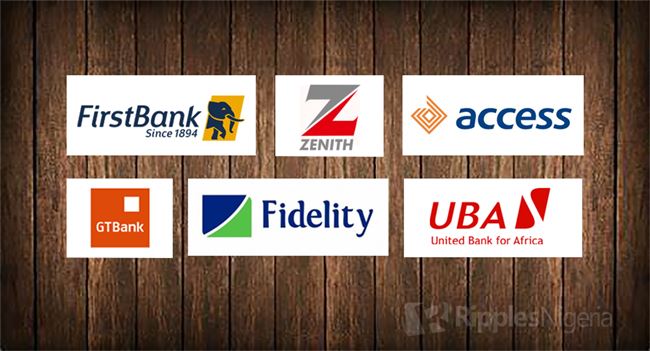Business
BUSINESS REVIEW: All that noise by commercial banks on financial inclusion; in whose interest?

Lately, there has been an increasing push by commercial banks, struggling towards the claimed achievement of financial inclusion across 36 states of the country. This has resulted to a number of changes and developments we are currently noticing within the neighbourhood courtesy of these banks.
A notable one among these changes is the emergence of remote bank agents in the nook and crannies of major cities and local communities.
Today, commercial banks are inching everyday closer to prospective customers –reducing points of contact of customers to main branches via increasing its outlets by way of licensing agents to process basic transactions – withdrawal and deposit– on their behalf.
The claim is that Nigeria needed to be more financially included in order to have a better control of its monetary flow as it has been observed that a pool of cash is usually locked outside banks. The reality is that the CBN can establish a figure to the amount in circulation but cannot optimally control or trace it.
Reframing the concept
Technically, the bid is to convert the unbanked populace. That is, those who do not operate a bank account such as some market women, local artisans, traders, farmers etc. While their reasons for not being a “listed” bank entity may vary; often time, these people are low-income earners whose wages can barely cater for a mouth.
Hence, it’s needless to save a portion of their meager finance –especially when doing such will incur extra costs such as transport expenses to banks and service charges.
Read also: BUSINESS REVIEW: The complete story of the border closure. See why Ghana has come begging
Against this backdrop, and in order to establish a traceable financial statement for this class of people; commercial banks, (supposedly) driven by the financial inclusion vision of the Central Bank of Nigeria, are facilitating methods and a medium to convert this percentage that remains financially excluded.
CBN’s target
In 2012, the CBN under its former governor, Sanusi Lamido Sanusi, proposed to increase Nigeria’s financially included population to 80% by 2020, a target which was (then) 8 years away but now barely 3 months. As tagged: The Nigerian National Financial Inclusion Strategy (NFIS) was launched with the goal of having 70% from the formal sector of the economy.
In the news
Ripples Nigeria recently reported that CBN in its latest report had disclosed that financial inclusion rate has increased to 63.2% as at the end of 2018. Interpreting this statement from the apex bank, 63.2% of the Nigerian population already have access to financial services. And by way of calculation, financial excluded citizens make up only 36.8%.
New terms
For CBN to meet its target, it has estimated that 100,000 adults require the service of 62 agents. At the moment, about 28.2 agents per 100,000 adults could still be established. In closing this gap, the CBN is banking on microfinance banks to this end.
Commercial banks vs. microfinance banks
While microfinance banks have been a major drive in this ambition, commercial banks have equally been recently noticed flying campaigns to this end. With over 898 microfinance banks (MfBs) in Nigeria according to data from the CBN, commercial banks can only keep struggling to convert low-income earners as much as these microfinance banks.
The remote banking strategy where multiple vendors are licensed to operate on behalf of these commercial banks might be a good way to swing the game and have more outlets across the country. But, the usual highhandedness and unfriendly financial provisions of commercial banks to low-income earners might not favour this conversion.
With only MfBs disbursing loans of small amounts to poor households to invest in their small business or for personal use; commercial banks, thus, appear to have keyed into the campaign for selfish interest.
Quest for financial gain
An increase in customer base is the ultimate goal for business leaders. Therefore, these commercial banks are not out of scope. However, not being ready to fulfill some obligation makes them selfish and on a wild-goose chase. They should consider reviewing (among others) their credit facilities for SMEs and low-income earners.
The better thing to do is to make provisions to accommodate this fraction in the populace if they must convert them into their fund pool or leave them in the hands of the MfBs. When they do the needful, it’s a win-win –more funds will be available for these banks to do business while customers can equally benefit from a variety of affordable credit facilities when its need arises.
Like the MfBs, an improved financial commitment that accommodates the less endowed is all that is needed for the spin. Otherwise, various campaigns championed to this end by commercial banks will be considered to be informed by greed.
By Ridwan Adelaja…
Join the conversation
Support Ripples Nigeria, hold up solutions journalism
Balanced, fearless journalism driven by data comes at huge financial costs.
As a media platform, we hold leadership accountable and will not trade the right to press freedom and free speech for a piece of cake.
If you like what we do, and are ready to uphold solutions journalism, kindly donate to the Ripples Nigeria cause.
Your support would help to ensure that citizens and institutions continue to have free access to credible and reliable information for societal development.






















